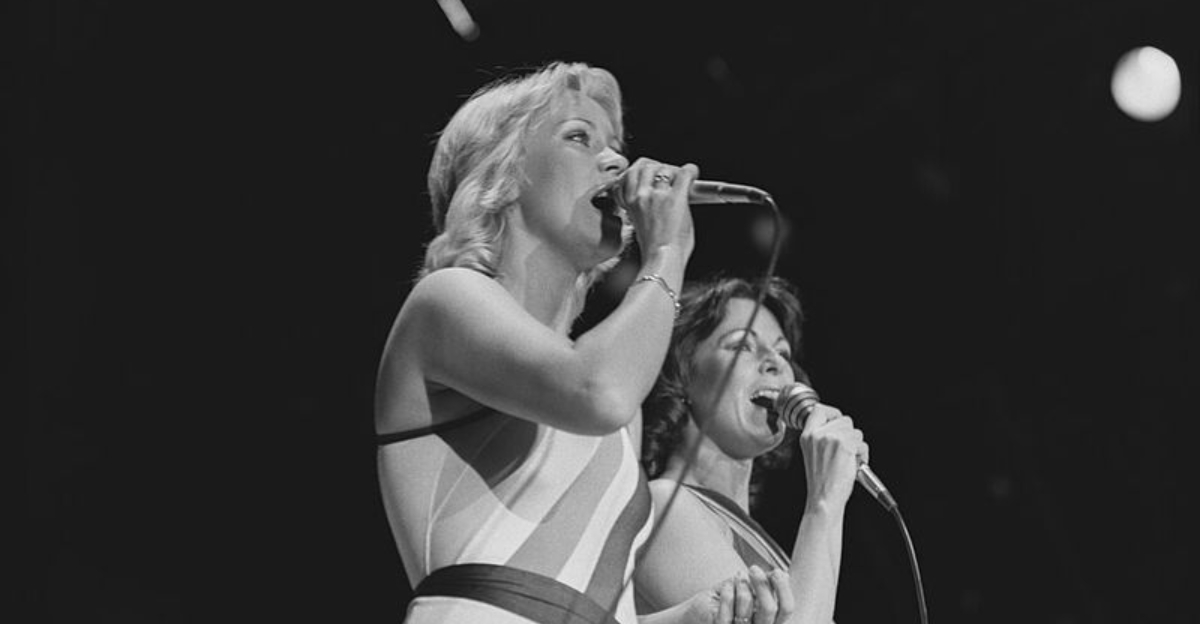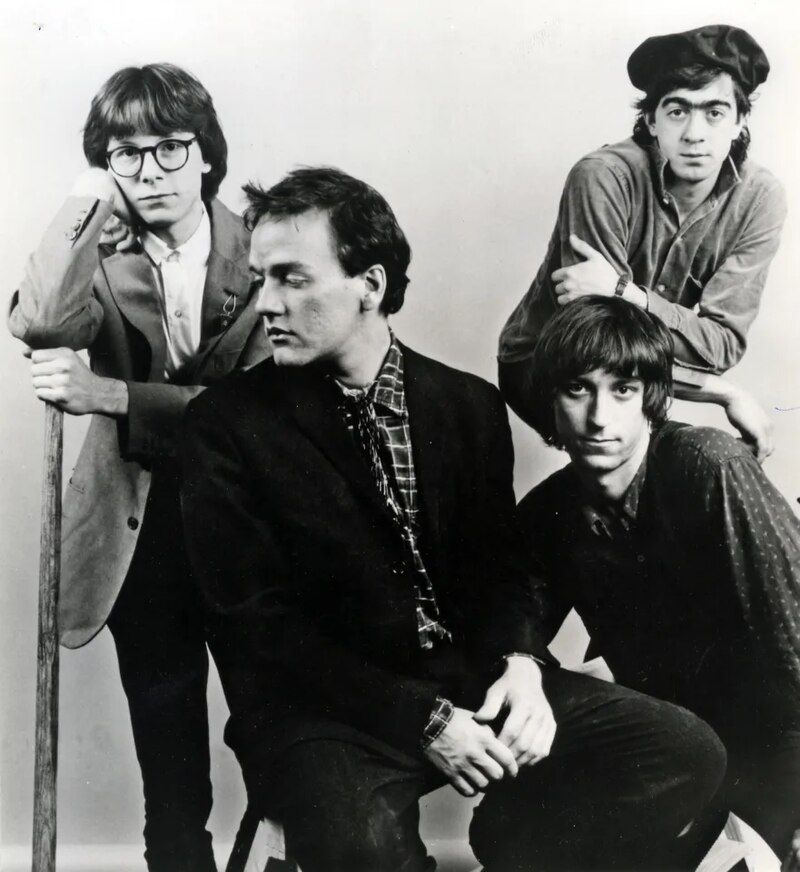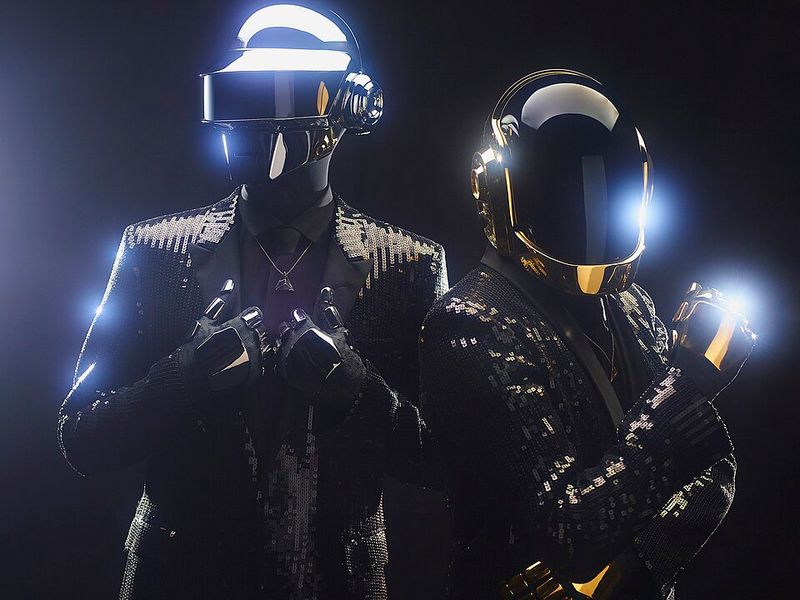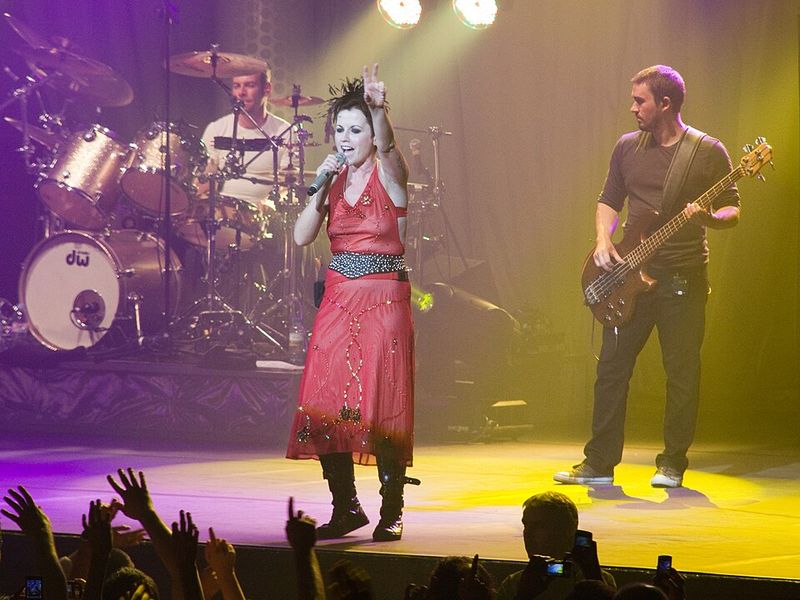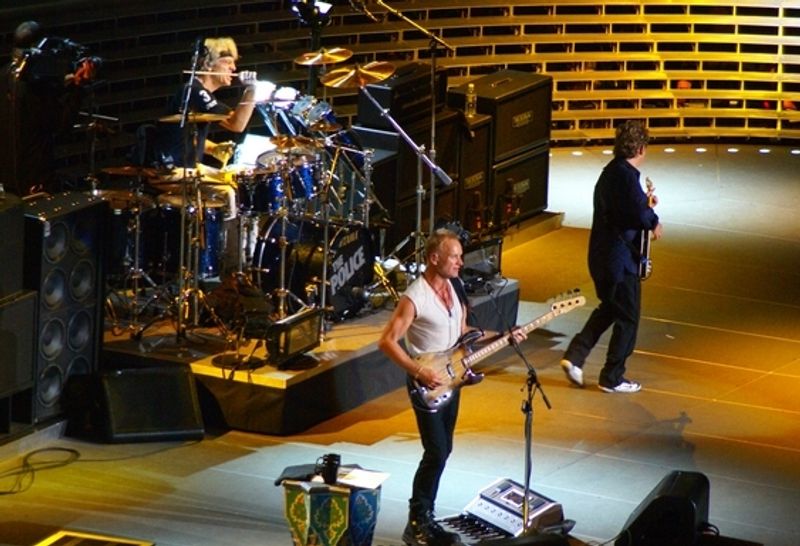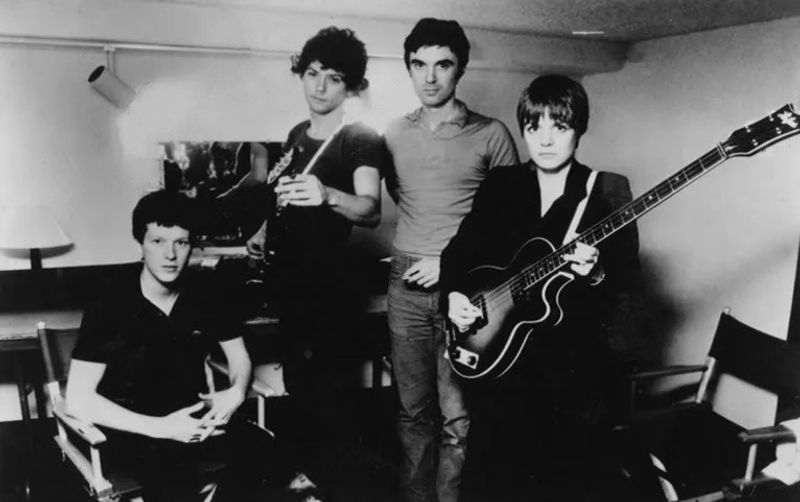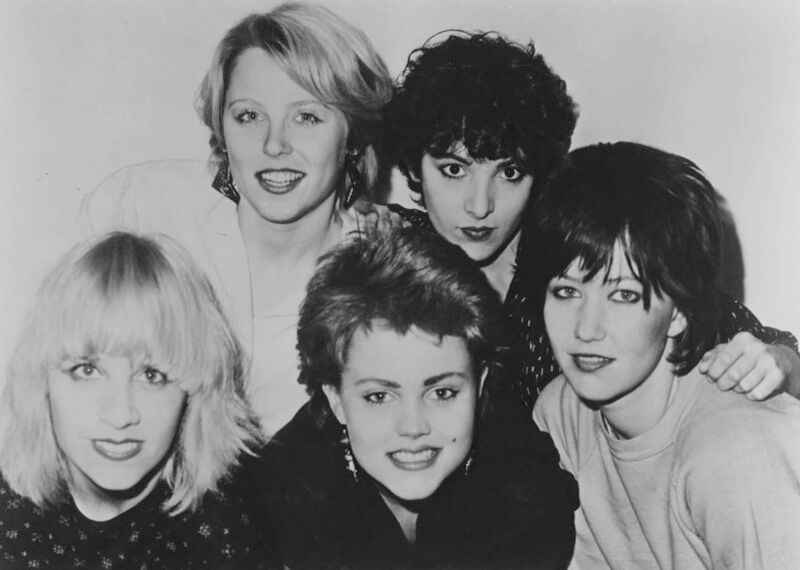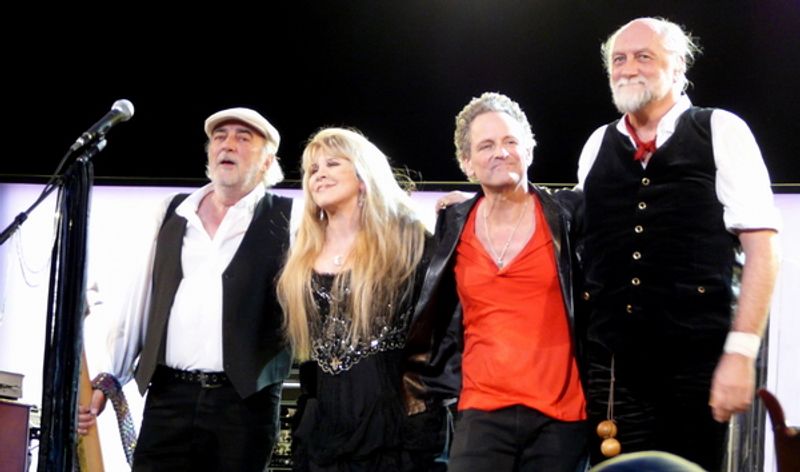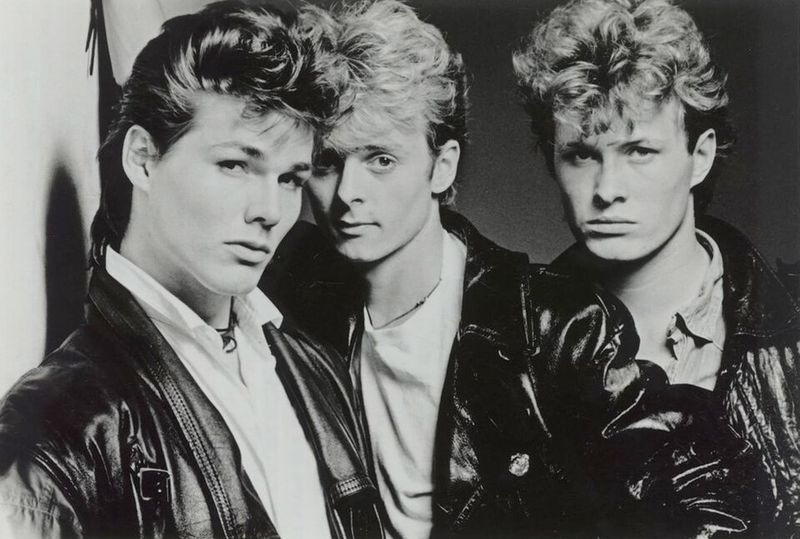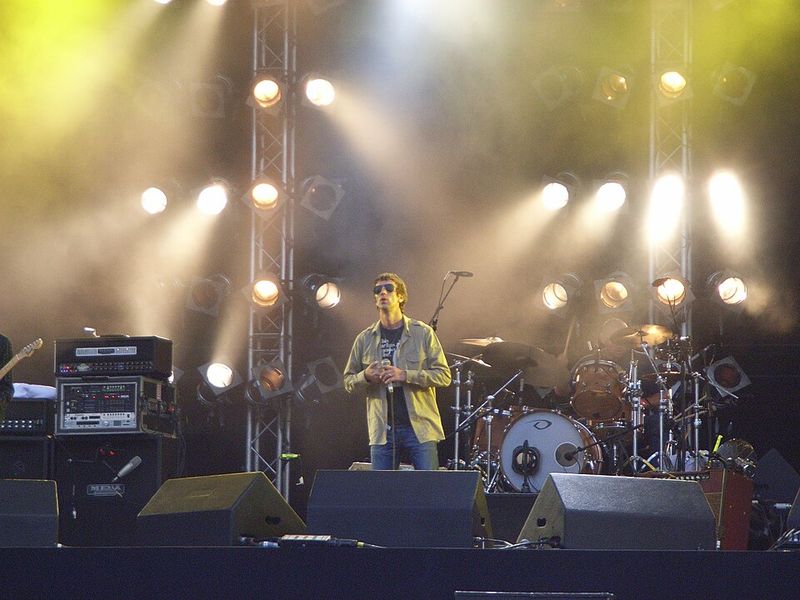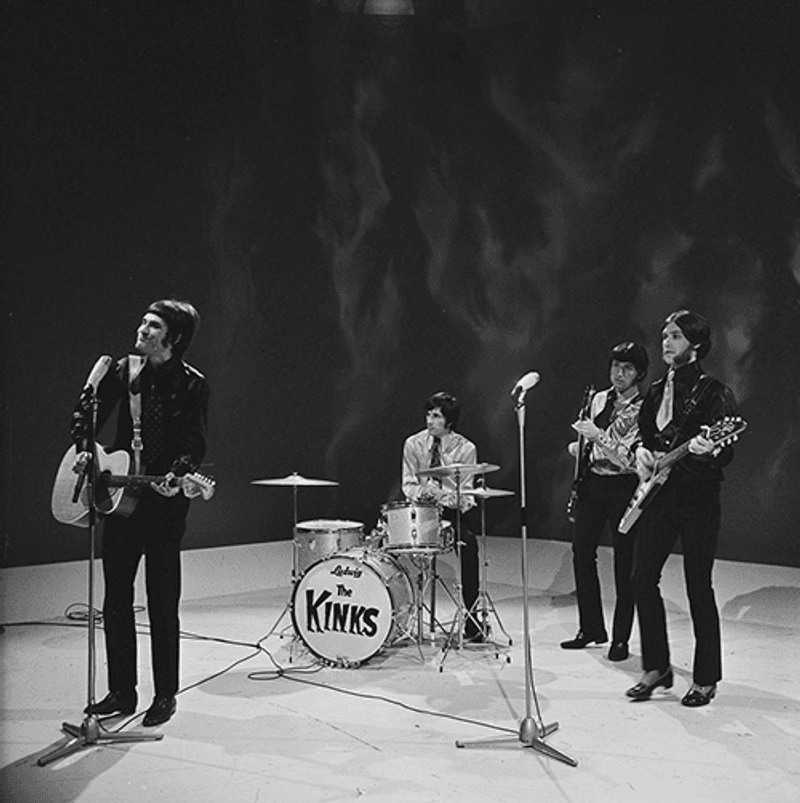Not every legendary band ends with fireworks or a front-page feud. Some choose the soft fade-out, stepping away with gratitude while their songs continue to echo. This list revisits 12 groups that once ruled stages and radios, then bowed out with minimal fanfare. Their exits are gentle, but their legacies still thunder – making their quiet disappearances all the more fascinating.
1. R.E.M.
R.E.M. evolved from Athens, Georgia college radio heroes into global ambassadors of alternative rock. With literate lyrics and chiming guitars, they made introspection feel stadium-sized, peaking with hits like “Losing My Religion” and “Everybody Hurts.” After 31 years, they announced their breakup in 2011 via a simple online post – no explosive press conference, no farewell spectacle. The message emphasized gratitude, friendship, and the integrity of ending on their own terms. Members pursued solo and production work while guarding the band’s myth with respectful silence. Their catalog remains a map for artists seeking sincerity over swagger. In stepping back gently, R.E.M. preserved what made them singular: modesty, melody, and an unwavering belief in songcraft.
2. The White Stripes
The White Stripes distilled rock to primal essentials: guitar, drums, and a palette of red, white, and black. Jack and Meg White’s raw riffs and childlike wonder ignited the early 2000s, birthing an anthem in “Seven Nation Army” that now echoes through stadiums. In 2011, they ended the band to preserve the art rather than exhaust it. No reunion narrative, no public quarrels – just a note explaining that the music should stand alone. Their departure embodied the duo’s ethos: subtraction as power. Fans still debate the band’s mystique, but the silence feels intentional, almost ceremonial. The White Stripes didn’t fizzle; they concluded with restraint, leaving a focused body of work that continues to inspire minimalist maximalism.
3. Daft Punk
Daft Punk remapped pop’s circuitry, turning filtered house into global language. Their robot personas became cultural icons, as songs like “One More Time” and “Get Lucky” bridged dance floors and living rooms. After 28 years, the duo ended in 2021 with Epilogue, a cryptic short film that said everything by saying very little. No press scrum, no tell-all – just a dignified fade to silence. The masks, once barriers, became symbols of artistic privacy in an era that demands confession. In disappearing quietly, they underlined the mystique that powered their myth. The grooves endure, sampled and celebrated, while the creators retreat into legend, reminding us that mystery can be a form of authorship.
4. The Cranberries
The Cranberries threaded lilting Irish melodies with alt-rock bite, carried by Dolores O’Riordan’s unmistakable voice – tender, keening, and fierce. “Linger” and “Zombie” etched themselves into the ’90s, blending intimacy with protest. After O’Riordan’s sudden passing in 2018, the band completed one final album from existing vocals, honoring her presence without spectacle. They then stepped aside, allowing the music to remain the final word. No extended tour, no replacement search – just a graceful closing of the book. The decision felt aligned with their sensitivity and restraint. Fans still hear her timbre as a living memory, echoing across generations. In silence, The Cranberries preserved what mattered most: songs as keepsakes for collective grief and solace.
5. The Police
The Police compressed reggae rhythms, punk energy, and pop hooks into nervy precision. With “Roxanne” and “Every Breath You Take,” they scaled arenas while maintaining angular bite. Internal tensions mounted by the mid-’80s, yet their 1986 split arrived without public meltdowns. A 2007 reunion tour paid homage rather than promised rebirth, a meticulous lap celebrating chemistry that couldn’t be permanently rekindled. They exited without the tabloid theatrics that defined many peers, choosing professionalism over chaos. The band’s restraint sharpened their legacy: a concise catalog, crystalline musicianship, and an afterimage of cool detachment. In stepping down softly, The Police preserved their sharp silhouette – still cutting, still controlled, forever a snapshot of disciplined volatility.
6. ABBA
ABBA’s effervescent pop defined the late ’70s, gilding heartbreak with shimmering harmonies. After a torrent of hits, they eased into silence by 1982, withdrawing without bitterness or a headline-grabbing implosion. Their absence enriched the mythology: a pristine catalog, frozen in glamour. Decades later, they returned in 2021 with the virtual Voyage project, extending their story without fully reforming in the classic sense. It felt like a conversation across time – respectful, playful, and carefully controlled. The quiet decades taught fans to live with longing, to celebrate perfection rather than demand permanence. ABBA’s gentle exit and curated return exemplify pop diplomacy, turning scarcity into sparkle and leaving the mirrorball turning on memory.
7. Talking Heads
Talking Heads fused art school curiosity with elastic funk, inventing a jittery, brainy groove. Their evolution – from nervy minimalism to polyrhythmic spectacle – made them avatars of downtown creativity. By 1991, the group had dissolved without fireworks, as David Byrne pursued solo explorations and the others followed their own muses. No prolonged farewells, no splashy reunions – just a respectful distance that matched their cerebral cool. The music keeps breathing in clubs, galleries, and playlists, continually rediscovered. Their quiet fade underscores a simple truth: some ideas resolve best offstage. In leaving without rancor, Talking Heads kept the focus on the work’s strange vitality – still modern, still questioning, still teaching ears to dance sideways.
8. The Go-Go’s
The Go-Go’s broke barriers as a self-contained all-female band, pairing punk roots with pop sparkle. “We Got the Beat” and “Vacation” distilled an era of radio candy and DIY swagger. After their 1984 album Talk Show, they quietly stepped back, occasionally reuniting for tours and a Broadway celebration of their songs. No scorched-earth breakup, just the natural exhale after a meteoric run. Their influence spread quietly too – through countless bands inspired by their autonomy and hooks. The Go-Go’s proved that success needn’t rely on a Svengali or studio puppetry. Their low-drama exit amplified their message: play your songs, keep your agency, and know when to take a bow.
9. Fleetwood Mac
Fleetwood Mac’s legend is equal parts alchemy and turbulence, yet their final act arrived softly. Decades of lineup shifts culminated in a reflective 2020s slowdown, deepened by Christine McVie’s passing in 2022. Without grand pronouncements, members focused on personal paths, allowing the band to recede with dignity. The songs – “Dreams,” “Landslide,” “Go Your Own Way” – remain timeproof companions, outliving the machinery of touring. In the quiet, listeners found new resonance in old harmonies, hearing tenderness within the drama. The absence of a formal ending suits their mercurial history. Fleetwood Mac didn’t slam the door; they let it drift closed, leaving a draft that still rustles through classic rock radio.
10. A-ha
A-ha vaulted from Norway to global fame on the kinetic spark of “Take On Me.” Beneath the animated iconography was a band of meticulous craftsmen, refining synth-pop into something sleek and enduring. After a formal 2010 farewell tour, they reunited selectively for projects, then stepped back again – always measured, never melodramatic. Their approach balanced fan devotion with artistic self-preservation. The absence of feuds or spectacle kept attention on the material: crystalline melodies, elegant melancholy, and immaculate production. In choosing discretion over saturation, A-ha maintained a rare sheen. Their quiet intervals function like rests in a score – silences that make each returning note feel exquisitely placed.
11. The Verve
The Verve condensed late-’90s euphoria and hangover into sweeping psych-rock anthems. “Bitter Sweet Symphony” became a generational soundtrack, shadowed by sample-clearance infamy and creative friction. After on-and-off cycles, they ended quietly in 2009, sidestepping public spats and salacious narratives. Richard Ashcroft pursued solo work while the band’s legacy settled into reverent hindsight. Their departure felt like an exhale after pressure at the edges of success. The Verve’s catalog remains a study in grandeur and ache, strings coiling around sky-high choruses. The silence afterward only magnified the songs’ lingering resonance – like a final chord stretching into dusk across a Northern skyline.
12. The Kinks
The Kinks forged British rock’s wry wit, blasting out “You Really Got Me” before chronicling everyday life with sharp-eyed charm. Across decades, their lineup ebbed and flowed, pausing more than exploding. By the mid-1990s, the band had quietly dissolved – no grand farewell, only the gentle dimming of activity. The Davies brothers teased reunions, keeping embers glowing without stoking a blaze. This soft fade suits their contrarian streak, letting the songs – “Waterloo Sunset,” “Lola” – do the talking. Their influence radiates through Britpop and indie, a DNA thread of satire and melody. In ending without ceremony, The Kinks affirmed a timeless truth: style ages; great songwriting doesn’t.
